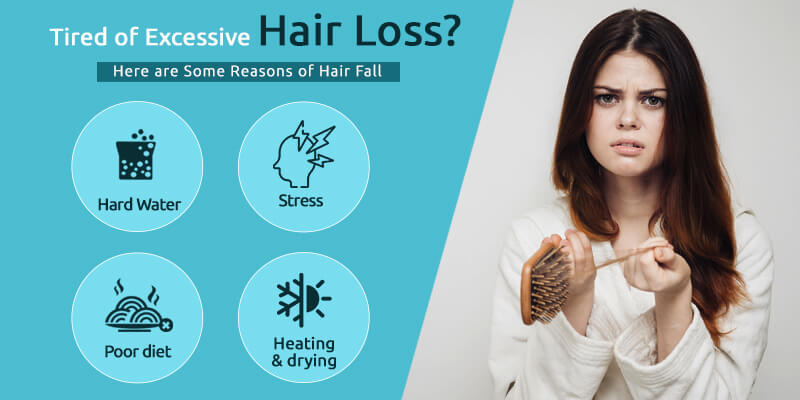HAIR FALL IS A BIG ISSUE ?
HAIR FALL IS A BIG ISSUE ? 😱😱😱
Introduction:Hair fall is a common concern that affects individuals of all ages and genders. I frequently encounter patients seeking guidance on addressing this issue. Here , we will explore the various factors contributing to hair fall and discuss effective strategies to manage and prevent it.
Understanding the Causes:
Genetics:
One of the primary factors influencing hair fall is genetics. If your parents or grandparents experienced hair loss, there is a likelihood that you may be genetically predisposed to it. Understanding your family history can provide valuable insights into your hair health.
Hormonal Changes:
Hormonal fluctuations, especially during puberty, pregnancy, and menopause, can significantly impact hair growth cycles. Conditions such as polycystic ovary syndrome (PCOS) and thyroid disorders can also contribute to hormonal imbalances leading to hair fall.
Nutritional Deficiencies:
Inadequate intake of essential nutrients like vitamins, minerals, and proteins can compromise the health of your hair. Iron, zinc, vitamin D, and B-complex vitamins play crucial roles in maintaining strong and vibrant hair.
Stress and Lifestyle Factors:
Chronic stress, lack of sleep, and an unhealthy lifestyle can adversely affect your overall well-being, including the health of your hair. High-stress levels trigger hormonal changes that may contribute to hair fall.
Medical Conditions and Medications:
Certain medical conditions such as alopecia areata, autoimmune disorders, and the side effects of medications like chemotherapy can lead to hair loss. It's essential to discuss any medications or health conditions with your healthcare provider.
Strategies for Managing Hair Fall:
Balanced Nutrition:
Ensure a well-balanced diet rich in vitamins, minerals, and proteins. Include foods such as leafy greens, nuts, fish, eggs, and dairy products to promote healthy hair growth.
Good Hair Care Practices:
Gentle hair care is crucial. Avoid excessive heat styling, tight hairstyles, and harsh chemicals. Use a mild, sulfate-free shampoo and conditioner suitable for your hair type.
Manage Stress:
Incorporate stress-reducing activities into your routine, such as exercise, meditation, or yoga. These practices can help balance hormones and alleviate the impact of stress on your hair.
Regular Exercise:
Physical activity improves blood circulation, which is essential for delivering nutrients to hair follicles. Engage in regular exercise to support overall health, including the health of your hair.
Consultation with a Physician:
If your hair fall persists or is severe, consult with physician. They can assess your specific condition, conduct necessary tests, and recommend personalized treatments, which may include topical solutions, medications, or proper diet plan which is useful for your hair.
Conclusion:
Hair fall is a multifaceted issue with various underlying causes. Taking a holistic approach that addresses lifestyle, nutrition, and stress can significantly impact the health of your hair. By consulting with a physician and adopting healthy habits, you can work towards preventing and managing hair fall, promoting a head of strong, luscious locks. Remember, the key to effective treatment lies in understanding and addressing the root causes of the problem.



.jpeg)

Comments
Post a Comment